
Rank tracking tool | SEO tools like SEMrush, Ahrefs, Moz Pro...
88 views · Sep 22, 2023 monibe.com
Rank tracking tool, A rank tracking tool is a software application that helps you track the ranking of your website or web pages in search engine results pages (SERPs). This can be useful for monitoring the performance of your SEO efforts and identifying areas where you need to improve. Rank tracking tools typically work by periodically checking the SERPs for your target keywords and recording the ranking of your website or web pages. This data can then be used to generate reports that show how your rankings have changed over time. Some of the benefits of using a rank tracking tool include: Track your SEO progress: Rank tracking tools can help you track the progress of your SEO efforts by showing you how your rankings have changed over time. This information can be used to identify which of your SEO strategies are working and which ones need to be adjusted. Identify opportunities for improvement: Rank tracking tools can help you identify opportunities to improve your rankings by showing you which keywords you are ranking well for and which keywords you need to improve your rankings for. Benchmark against competitors: Rank tracking tools can help you benchmark your rankings against those of your competitors. This information can be used to identify which keywords you are ranking better for than your competitors and which keywords you need to improve your rankings for. There are a number of different rank tracking tools available, both free and paid. Some of the most popular rank tracking tools include: SEMrush Ahrefs Moz Pro SERPWatcher Mangools Nightwatch ProRankTracker When choosing a rank tracking tool, it is important to consider the following factors: Features: What features are important to you, such as keyword tracking, competitor tracking, and reporting? Accuracy: How accurate is the rank tracking data? Ease of use: How easy is the rank tracking tool to use? Pricing: How much does the rank tracking tool cost?
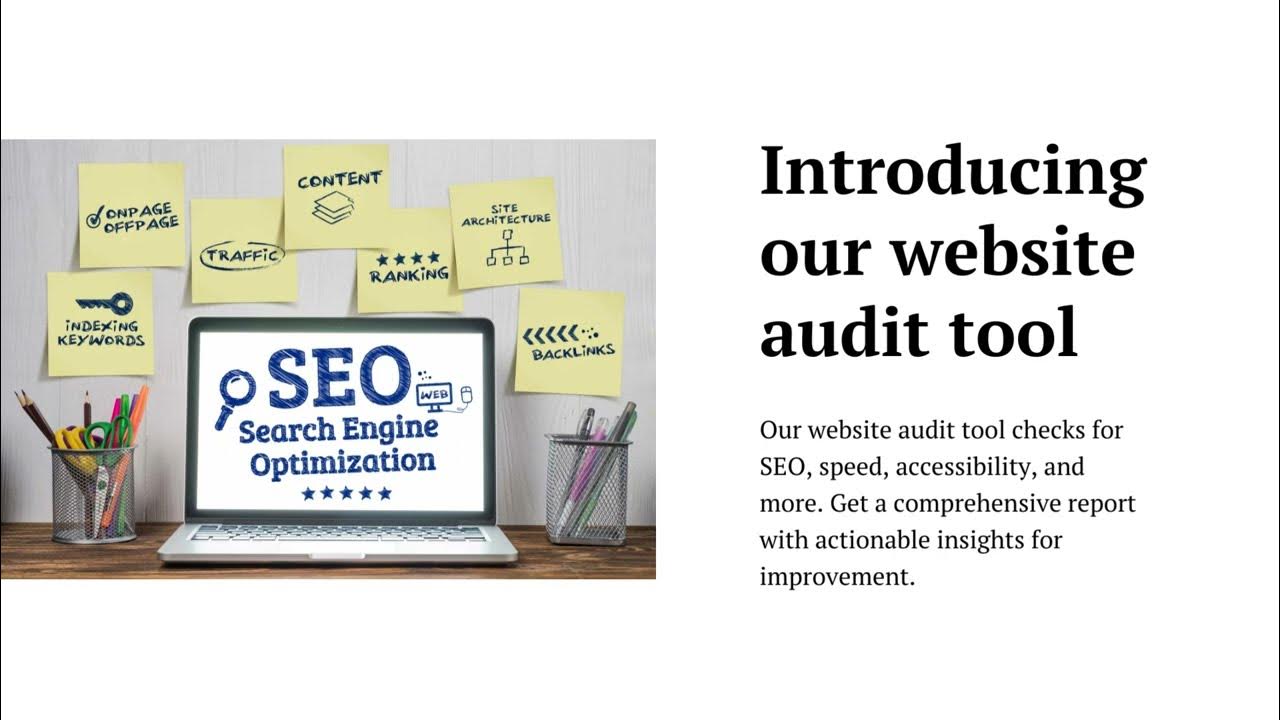
Website audit tool | Technical issues, such as broken links,...
2 views · Sep 22, 2023 monibe.com
Website audit tool, A website audit tool is a software application that helps you identify and fix technical, SEO, and content issues on your website. It can also help you improve the performance and user experience of your website. Website audit tools typically work by scanning your website and generating a report that highlights any issues that need to be addressed. The report may include information on the following: Technical issues, such as broken links, missing alt text, and slow loading times SEO issues, such as duplicate content, keyword stuffing, and incorrect meta tags Content issues, such as thin content, plagiarism, and grammatical errors Some of the benefits of using a website audit tool include: Identify and fix website issues: Website audit tools can help you identify and fix a wide range of website issues, which can improve the performance, SEO, and user experience of your website. Save time and effort: Website audit tools can save you a lot of time and effort by automating the process of scanning your website for issues. Get expert advice: Website audit tools often provide expert advice on how to fix the issues that are identified in the report. There are a number of different website audit tools available, both free and paid. Some of the most popular website audit tools include: SEMrush Ahrefs Moz Pro Google Search Console Bing Webmaster Tools SiteChecker Seoptimer Screaming Frog SEO Spider DeepCrawl OnCrawl

SEO analyzer | Content issues: Thin content, duplicate conte...
310 views · Sep 22, 2023 monibe.com
SEO analyzer, An SEO analyzer is a tool that helps you identify and fix SEO issues on your website. It can also help you improve the performance and ranking of your website in search engine results pages (SERPs). SEO analyzers typically work by scanning your website and generating a report that highlights any SEO issues that need to be addressed. The report may include information on the following: Technical issues: Broken links, missing alt text, slow loading times, etc. Content issues: Thin content, duplicate content, plagiarism, grammatical errors, etc. On-page SEO issues: Missing or incorrect meta tags, keyword stuffing, etc. Off-page SEO issues: Backlink quality and quantity, etc. Some of the benefits of using an SEO analyzer include: Identify and fix SEO issues: SEO analyzers can help you identify and fix a wide range of SEO issues, which can improve the ranking and performance of your website in SERPs. Save time and effort: SEO analyzers can save you a lot of time and effort by automating the process of scanning your website for SEO issues. Get expert advice: SEO analyzers often provide expert advice on how to fix the SEO issues that are identified in the report. There are a number of different SEO analyzers available, both free and paid. Some of the most popular SEO analyzers include: SEMrush Ahrefs Moz Pro Google Search Console Bing Webmaster Tools SiteChecker Seoptimer Screaming Frog SEO Spider DeepCrawl OnCrawl When choosing an SEO analyzer, it is important to consider the following factors: Features: What features are important to you, such as technical SEO analysis, content SEO analysis, on-page SEO analysis, and off-page SEO analysis? Accuracy: How accurate is the SEO analyzer? Ease of use: How easy is the SEO analyzer to use? Pricing: How much does the SEO analyzer cost?

On page optimization tool | On-page SEO issues: Missing or i...
2K views · Sep 22, 2023 monibe.com
On page optimization tool On-page optimization tools typically work by scanning your web pages and generating a report that highlights any on-page SEO issues that need to be addressed. The report may include information on the following: Technical issues: Broken links, missing alt text, slow loading times, etc. Content issues: Thin content, duplicate content, plagiarism, grammatical errors, etc. On-page SEO issues: Missing or incorrect meta tags, keyword stuffing, etc. Some of the benefits of using an on-page optimization tool include: Identify and fix on-page SEO issues: On-page optimization tools can help you identify and fix a wide range of on-page SEO issues, which can improve the ranking and performance of your web pages in SERPs. Save time and effort: On-page optimization tools can save you a lot of time and effort by automating the process of scanning your web pages for on-page SEO issues. Get expert advice: On-page optimization tools often provide expert advice on how to fix the on-page SEO issues that are identified in the report. There are a number of different on-page optimization tools available, both free and paid. Some of the most popular on-page optimization tools include: SEMrush Ahrefs Moz Pro Google Search Console Bing Webmaster Tools Yoast SEO Rank Math SEO All in One SEO Pack SEOPress The SEO Framework SEOptimer When choosing an on-page optimization tool, it is important to consider the following factors: Features: What features are important to you, such as technical SEO analysis, content SEO analysis, on-page SEO analysis, and keyword research? Accuracy: How accurate is the on-page optimization tool? Ease of use: How easy is the on-page optimization tool to use? Pricing: How much does the on-page optimization tool cost?
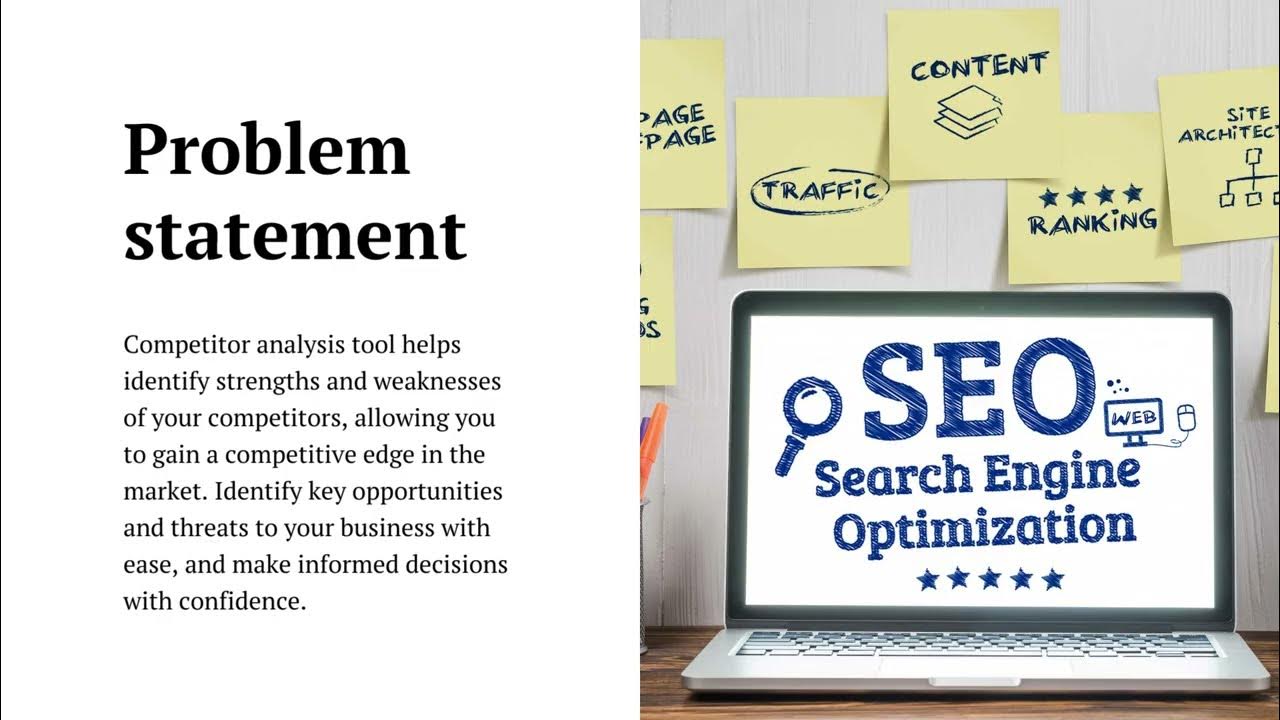
Competitor analysis tool | The SEO Framework, SEOptimer, SEM...
1K views · Sep 22, 2023 monibe.com
Competitor analysis tool, A competitor analysis tool is a software application that helps you analyze your competitors' websites and online presence. This information can be used to develop strategies to improve your own website and online presence and to gain a competitive advantage. Competitor analysis tools typically work by collecting data from a variety of sources, such as website traffic data, search engine results pages (SERPs), and social media. This data is then analyzed to generate reports that provide insights into your competitors' strengths and weaknesses, their target audience, and their marketing strategies. Some of the benefits of using a competitor analysis tool include: Identify your competitors: Competitor analysis tools can help you identify your direct and indirect competitors, as well as new and emerging competitors. Understand your competitors' strengths and weaknesses: Competitor analysis tools can help you understand your competitors' strengths and weaknesses in terms of their website, online presence, and marketing strategies. Identify opportunities for improvement: Competitor analysis tools can help you identify opportunities to improve your own website and online presence by benchmarking your performance against your competitors. Gain a competitive advantage: By understanding your competitors and identifying opportunities for improvement, you can gain a competitive advantage in your market. There are a number of different competitor analysis tools available, both free and paid. Some of the most popular competitor analysis tools include: SEMrush Ahrefs Moz Pro SpyFu SimilarWeb BuzzSumo Mention Social Mention Hootsuite Analytics Sprout Social Brand24
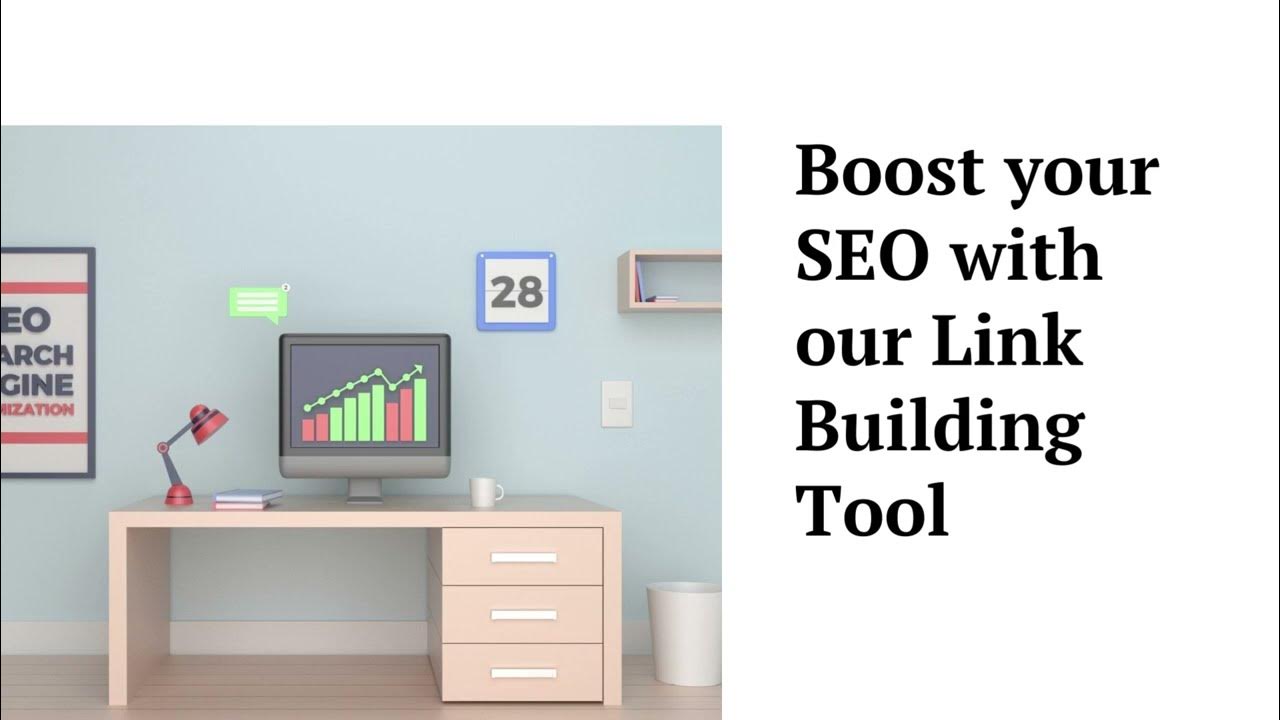
Link building tool | Link Building for SEO | Link Building B...
0 views · Sep 30, 2023 monibe.com
Link building is the process of acquiring hyperlinks from other websites to your own. A hyperlink (usually just called a link) is a way for users to navigate between pages on the Internet. Search engines use links to crawl the web and understand the structure of the web. They also use links to determine the authority of a website. In SEO, the goal of link building is to increase the number and quality of inbound links to a webpage in order to increase the search engine rankings of that page or website. This is because search engines see links from other high-quality websites as a vote of confidence in your website. There are many different ways to build links, but some of the most common strategies include: Content marketing: Creating high-quality content that is relevant to your target audience and that other websites are likely to link to. Email outreach: Reaching out to other website owners and asking them to link to your content. Broken link building: Finding broken links on other websites in your niche and suggesting that they link to your content instead. Guest blogging: Writing guest posts for other websites in your niche and including a link back to your own website in your bio. Social media: Sharing your content on social media and encouraging others to link to it. It is important to note that not all links are created equal. Some links are more valuable than others. For example, a link from a high-authority website (such as a news website or a government website) is more valuable than a link from a low-authority website (such as a personal blog or a forum). It is also important to avoid building links in a spammy way. Search engines can penalize websites that build links using spammy tactics. Here are some tips for building high-quality links: Create high-quality content that is relevant to your target audience. Promote your content on social media and other websites. Reach out to other website owners and ask them to link to your content. Be patient and consistent. It takes time to build a good link profile. Link building is an important part of SEO, but it is important to do it the right way. By building high-quality links, you can improve your search engine rankings and reach a wider audience.
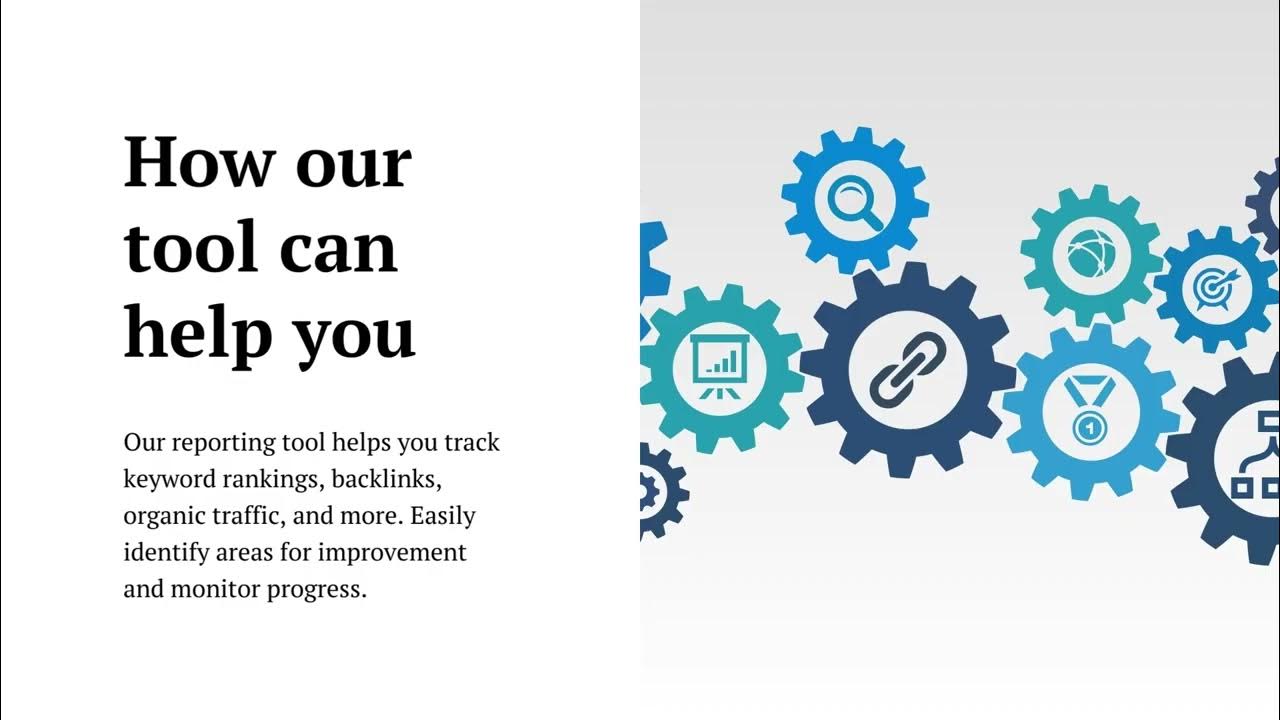
SEO, or search engine optimization | On-page SEO | Off-page ...
0 views · Sep 30, 2023 monibe.com
SEO, or search engine optimization, is the process of improving the visibility of a website or web page in search engine results pages (SERPs). This is done by optimizing the website's content, structure, and technical performance for search engines. There are a number of different factors that search engines use to rank websites, including: Keywords: Search engines try to match the keywords that users enter into search queries with the content of websites. Therefore, it is important to optimize your website's content for relevant keywords. Backlinks: Backlinks are links from other websites to your own website. Search engines view backlinks as votes of confidence, and websites with more backlinks tend to rank higher in SERPs. Page loading speed: Search engines want to provide users with the best possible experience, so they favor websites that load quickly. Mobile-friendliness: More and more people are using their smartphones and tablets to search the web, so search engines favor websites that are mobile-friendly. There are a number of different SEO techniques that you can use to improve your website's ranking in SERPs. Some of the most common techniques include: On-page SEO: On-page SEO involves optimizing the content, structure, and technical performance of your website's pages. This includes things like using relevant keywords, writing high-quality content, and optimizing your website's loading speed. Off-page SEO: Off-page SEO involves building backlinks to your website from other websites. This can be done through a variety of methods, such as guest blogging, social media marketing, and directory submissions. Technical SEO: Technical SEO involves optimizing the technical aspects of your website, such as its code and infrastructure. This includes things like fixing broken links, improving your website's crawlability, and making sure your website is mobile-friendly. SEO can be a complex and time-consuming process, but it is essential for businesses that want to be visible in search engine results pages. By following the tips above, you can start to improve your website's ranking in SERPs and attract more visitors. Here are some of the benefits of SEO: Increased website traffic: When your website ranks higher in SERPs, more people will see it and visit it. Improved brand awareness: SEO can help you to build brand awareness and reach a wider audience. Increased leads and sales: When people visit your website, they may be more likely to become leads or customers. Reduced advertising costs: SEO can help you to reduce your advertising costs by driving traffic to your website organically. If you are serious about growing your business online, SEO is a must-have strategy. By investing in SEO, you can improve your website's ranking in SERPs, attract more visitors, and grow your business.
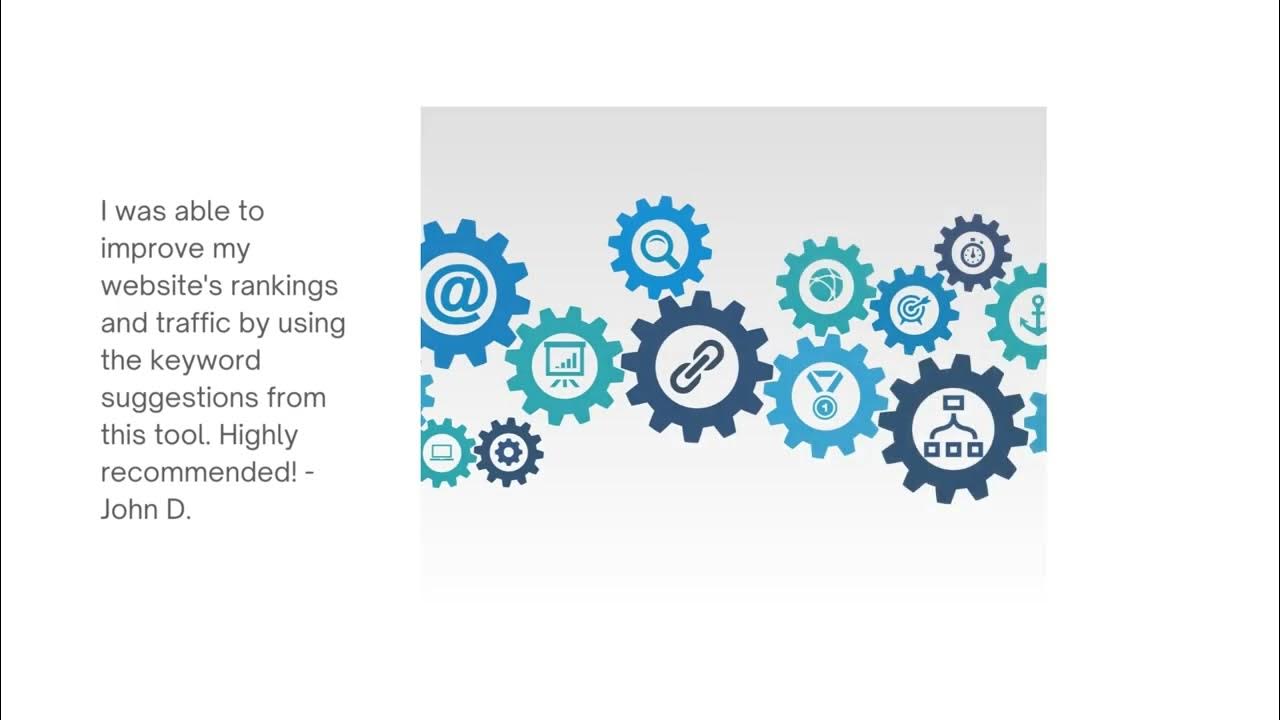
Do Keyword Research for SEO | Keyword Planner | Keyword Rese...
0 views · Sep 30, 2023 monibe.com
A keyword is a word or phrase that people use to search for information on search engines. When you optimize your website's content for keywords, you are trying to make it more likely that your website will appear in search results when people search for those keywords. There are a number of different types of keywords, including: Headline keywords: Headline keywords are the keywords that people are most likely to use when searching for information on a particular topic. For example, if you are selling shoes, a headline keyword could be "buy shoes online." Long-tail keywords: Long-tail keywords are more specific and less competitive than headline keywords. For example, instead of "buy shoes online," a long-tail keyword could be "buy women's running shoes online." LSI keywords: LSI keywords are related keywords that search engines use to understand the context of your content. For example, if you are writing a blog post about "how to choose the right running shoes," some of your LSI keywords could be "running shoes for beginners," "best running shoes for women," and "running shoes for flat feet." When choosing keywords for your website, it is important to consider the following factors: Search volume: Search volume is the number of times that a keyword is searched for in a given period of time. You can use keyword research tools to find out the search volume for different keywords. Competition: Competition is the number of other websites that are optimizing for a particular keyword. If a keyword is highly competitive, it will be more difficult to rank for that keyword. Relevance: It is important to choose keywords that are relevant to your website's content and to the products or services that you offer. Once you have chosen a set of keywords, you can use them to optimize your website's content for search engines. This includes things like using the keywords in your website's title tags, meta descriptions, headings, and throughout your content. By optimizing your website for keywords, you can improve your website's ranking in search results and attract more visitors. Here are some tips for using keywords effectively: Use a variety of keyword lengths: Use a mix of headline keywords, long-tail keywords, and LSI keywords. This will help you to reach a wider audience and improve your website's ranking for a variety of keywords. Use keywords naturally: Don't stuff your content with keywords. Use keywords in a natural way that makes sense for your audience. Optimize your website's structure: Make sure that your website is well-structured and easy to navigate. This will help search engines to understand your website and rank it more effectively. Build backlinks: Backlinks are links from other websites to your own website. Building backlinks is one of the most important factors for improving your website's ranking in search results. By following these tips, you can use keywords effectively to improve your website's ranking in search results and attract more visitors.

To write good content | write good content, you need to cons...
0 views · Sep 30, 2023 monibe.com
To write good content, you need to consider your audience, your purpose, and your tone. Audience: Who are you writing for? What are their interests? What do they already know about your topic? Purpose: What do you want your readers to do after they read your content? Do you want them to learn something new? Do you want them to take a specific action? Tone: What kind of mood or atmosphere do you want to create with your content? Do you want to be informative? Engaging? Persuasive? Once you have considered these factors, you can start to develop your content. Here are some tips: Start with a strong hook. The first few sentences of your content should grab your reader's attention and make them want to keep reading. Use clear and concise language. Avoid jargon and technical terms that your audience may not understand. Be organized and logical. Make sure your content flows well and is easy to follow. Use evidence to support your claims. Cite credible sources to back up your arguments. Use visuals to make your content more engaging. Images, infographics, and videos can help to break up your text and make your content more visually appealing. Proofread your content carefully before publishing it. Make sure there are no errors in grammar, spelling, or punctuation. Here are some additional tips for writing good content for the web: Optimize your content for search engines. This means using relevant keywords throughout your content and making sure your content is well-structured. Write for scannable content. People often read web content on their smartphones and tablets, so it is important to make your content easy to scan. Use headings, subheadings, and bullet points to break up your text and make it more readable. Include calls to action. Tell your readers what you want them to do after they read your content. Do you want them to subscribe to your newsletter? Do you want them to sign up for your webinar? Do you want them to buy your product or service? By following these tips, you can write good content that will engage your audience and achieve your goals.
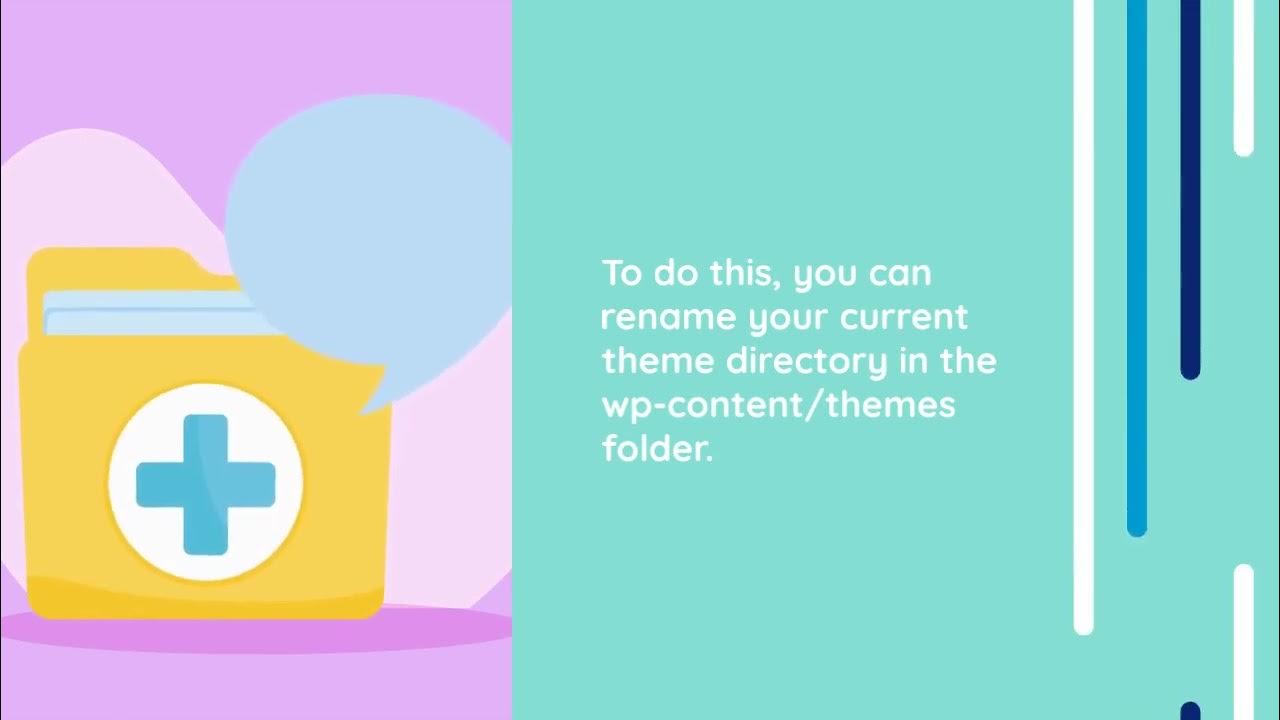
How to Fix the WordPress White Screen of | Clear the WordPre...
1 views · Oct 2, 2023 monibe.com
The WordPress White Screen of Death (WSoD) is a common error that can occur for a variety of reasons. It can be caused by a plugin conflict, a theme issue, a corrupted file, or even a problem with your hosting provider. If you're seeing the WSoD on your WordPress site, there are a few things you can try to fix it: Check your server availability. Make sure that your hosting provider is up and running. If it's not, you'll need to contact them to get the issue resolved. Clear your browser cache. Sometimes, the WSoD can be caused by a corrupted browser cache. To fix this, try clearing your browser cache and cookies. Disable your plugins. One of the most common causes of the WSoD is a plugin conflict. To troubleshoot this, try disabling all of your plugins. If the WSoD goes away, then you know that one of your plugins is causing the problem. You can then re-enable your plugins one by one until you find the one that's causing the issue. Switch to a default theme. Another common cause of the WSoD is a theme issue. To troubleshoot this, try switching to a default WordPress theme. If the WSoD goes away, then you know that your theme is causing the problem. You can then try contacting your theme developer for assistance. Increase your memory limit. If you're running a lot of plugins or have a large website, you may need to increase your memory limit. You can do this by editing your wp-config.php file. Check your error logs. If you're still having trouble fixing the WSoD, you can check your WordPress error logs for more information. These logs can provide you with clues about what's causing the error. Restore your website from a backup. If you've tried all of the above and you're still unable to fix the WSoD, you can try restoring your website from a backup. This will revert your website to a previous state, before the error occurred. If you're not comfortable troubleshooting the WSoD yourself, you can always contact your hosting provider or a WordPress expert for assistance.

8 Best Blogging Resources to Get started in 2023
9K views · Aug 8, 2023 monibe.com
As a new blogger, you may be worried about the best blogging resources for your WordPress website, you may be overwhelmed, by the amount of information you

8 Best Blogging Resources to Get started in 2023
6K views · Sep 13, 2023 monibe.com
As a new blogger, you may be worried about the best blogging resources for your WordPress website, you may be overwhelmed, by the amount of information you

How to Make Blog for Beginners In India 2023
8K views · May 2, 2023 monibe.com
To create a blog, you will need to follow these steps:

Cómo Crear un Blog Guía para Principiantes
12K views · May 2, 2023 monibe.com
Cómo Crear un Blog Guía para Principiantes, ¿Estás interesado en crear un blog? Esta guía para principiantes te enseñará cómo empezar. Desde elegir una plataforma hasta publicar tu primer artículo, encontrarás todo lo que necesitas saber para crear un blog exitoso.

Cómo Crear un Blog Guía para Principiantes | Guía para ...
32K views · Nov 8, 2023 monibe.com
Cómo Crear un Blog Guía para Principiantes | Guía para principiantes: cómo comenzar un blog